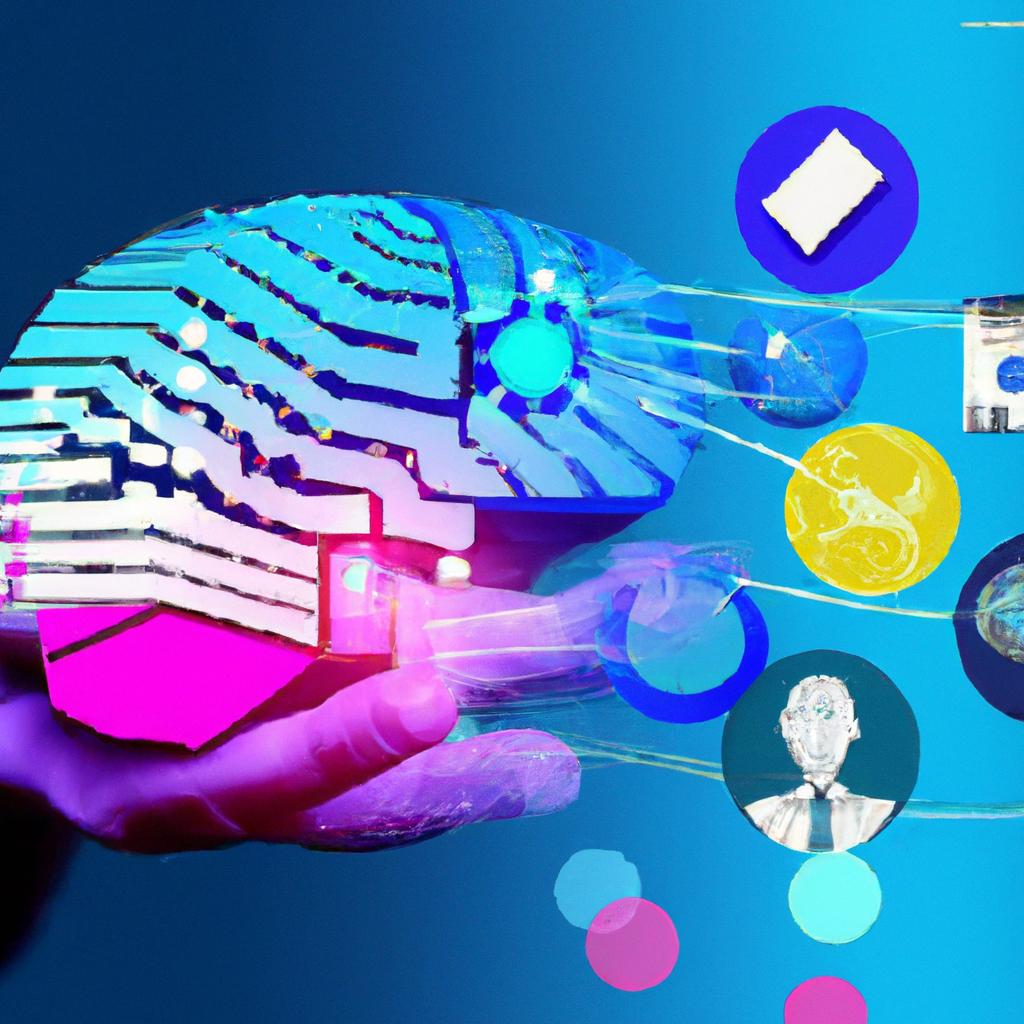
The Role of Artificial Intelligence in E-commerce
In a digital age where convenience and efficiency reign supreme, the integration of artificial intelligence in e-commerce has revolutionized the way we shop. From personalized recommendations to efficient customer service, AI has become an indispensable tool for businesses looking to edge out the competition. Join us as we delve into the fascinating world of AI-powered e-commerce and explore the myriad ways in which this groundbreaking technology is shaping the future of online shopping.
Table of Contents
- Challenges and Opportunities of Implementing AI in E-commerce
- Enhancing Customer Engagement and Personalization through AI
- Optimizing Supply Chain Management with Artificial Intelligence
- Maximizing Sales and Revenue through AI-driven Marketing Strategies
- Q&A
- Concluding Remarks
Challenges and Opportunities of Implementing AI in E-commerce
Artificial Intelligence (AI) is revolutionizing the way e-commerce businesses operate, presenting both challenges and opportunities for growth and innovation. One of the main challenges of implementing AI in e-commerce is the initial investment required to develop and integrate AI technology into existing systems. However, the long-term benefits of AI, such as increased efficiency and personalized customer experiences, can outweigh the initial costs.
On the other hand, the opportunities presented by AI in e-commerce are vast. By leveraging AI algorithms and machine learning, online retailers can better understand customer behavior and preferences, leading to more targeted marketing campaigns and product recommendations. Additionally, AI can help streamline inventory management, optimize pricing strategies, and enhance the overall shopping experience for customers. Embracing AI in e-commerce can give businesses a competitive edge in an increasingly crowded market.
Enhancing Customer Engagement and Personalization through AI
In the world of e-commerce, artificial intelligence (AI) plays a crucial role in enhancing customer engagement and personalization. By leveraging AI technology, online retailers can tailor their customer’s shopping experiences to their unique preferences and behavior patterns. This not only improves customer satisfaction but also increases the likelihood of repeat purchases and brand loyalty.
One way AI enhances customer engagement is through personalized product recommendations. By analyzing a customer’s past purchases, browsing history, and demographic information, AI algorithms can suggest relevant products that align with their interests. Additionally, AI-powered chatbots provide real-time customer support, helping to answer queries, address concerns, and guide customers through the purchasing process. With the ability to analyze vast amounts of data in real-time, AI enables e-commerce businesses to deliver personalized experiences that keep customers delighted and coming back for more.
Optimizing Supply Chain Management with Artificial Intelligence
Artificial Intelligence (AI) has revolutionized the way businesses manage their supply chain operations in the e-commerce industry. By utilizing AI technologies, companies can streamline their processes, improve efficiency, and ultimately enhance the overall customer experience. One of the key benefits of AI in supply chain management is its ability to predict demand accurately, thereby reducing the risk of overstocking or stockouts.
Moreover, AI-powered solutions can help businesses optimize their inventory levels, analyze market trends, and automate repetitive tasks. This not only saves time and resources but also enables companies to make data-driven decisions that drive growth and profitability. With AI, e-commerce businesses can achieve greater visibility and control over their supply chain, resulting in a competitive edge in the market.
Maximizing Sales and Revenue through AI-driven Marketing Strategies
Artificial intelligence (AI) has revolutionized the way e-commerce businesses operate, providing cutting-edge solutions to enhance sales and revenue. By utilizing AI-driven marketing strategies, companies can now tap into valuable insights, predictive analytics, and personalized customer experiences. This technology enables businesses to optimize their marketing efforts, streamline processes, and ultimately drive conversions.
With AI, e-commerce platforms can analyze vast amounts of data in real-time, identify trends, and make data-driven decisions to maximize sales and revenue. Through AI-powered tools such as chatbots, recommendation engines, and personalized messaging, businesses can engage with customers in a more meaningful way, leading to increased customer satisfaction and loyalty. By leveraging AI-driven marketing strategies, e-commerce businesses can stay ahead of the competition and achieve sustainable growth in today’s fast-paced digital landscape.
Q&A
Q: What is the role of artificial intelligence in e-commerce?
A: Artificial intelligence revolutionizes e-commerce by enhancing customer experiences, streamlining processes, and personalizing recommendations.
Q: How does AI improve customer experiences in online shopping?
A: AI analyzes customer data to predict preferences, offer tailored product recommendations, and provide real-time support through chatbots.
Q: How does AI help streamline e-commerce processes?
A: AI automates tasks such as inventory management, order processing, and customer service, increasing efficiency and reducing human error.
Q: How does AI personalize product recommendations for consumers?
A: AI algorithms analyze browsing history, purchase behavior, and demographics to suggest relevant products, increasing conversion rates and customer satisfaction.
Q: What are some examples of AI-driven innovations in e-commerce?
A: Virtual shopping assistants, voice search technology, personalized marketing campaigns, and dynamic pricing strategies are examples of AI-driven innovations in e-commerce.
Concluding Remarks
As we navigate the ever-evolving landscape of e-commerce, one thing is clear: artificial intelligence is shaping the future of online shopping in ways we could never have imagined. From personalized recommendations to chatbots enhancing customer service, the role of AI in e-commerce is only expected to grow. As we harness the power of this technology, we must continue to explore how it can enhance the customer experience and drive business growth. With AI leading the way, the possibilities for the future of e-commerce are truly endless. So let’s embrace this transformation and see where it takes us next in the world of online shopping.


